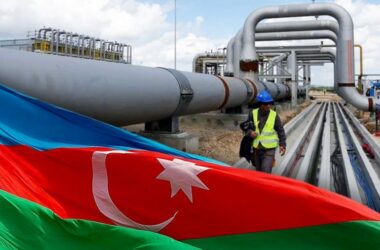The political landscape in Europe is shifting dramatically, and Hungary’s Prime Minister Viktor Orbán is once again at the center of this transformation. In a landmark meeting, Orbán welcomed Alternative für Deutschland (AfD) co-chair Alice Weidel to Budapest, making him the first European leader to officially receive a top AfD figure. The meeting has sent shockwaves through both Brussels and Berlin, as AfD gains increasing legitimacy and challenges Germany’s political status quo.
This historic event comes at a pivotal moment: Germany faces early elections on February 23, and the AfD has surged in the polls, emerging as a powerful force that can no longer be sidelined. Meanwhile, voices from across the Atlantic, including U.S. Senator JD Vance, are urging Germany’s Christian Democratic Union (CDU) to abandon its political firewall and consider governing with the AfD, a move that would redefine European politics.
A Strategic Alliance for a Changing Europe
At the heart of the Orbán-Weidel discussions was a shared vision for Europe’s future, centered on sovereignty, national identity, and a firm stance against uncontrolled migration. Orbán, who has been a vocal critic of Germany’s past and present leadership on migration, did not hold back in his assessment of Berlin’s policies.
“Hungary endured years of enormous pressure from Germany to open its borders,” Orbán stated. “But today, we have zero illegal migrants. Imagine a Germany without a single illegal migrant.”
The Hungarian Prime Minister emphasized that the European Migration Pact is beyond reform, advocating instead for a full-scale political “revolution” in Europe. He expressed hope that Germany will soon join Hungary in resisting EU-imposed migration policies.
For Weidel, Orbán’s Hungary represents a model of sovereignty and national resilience. “Hungarians take pride in their culture and identity,” she declared. “I want a proud Germany once again.” She praised Orbán’s leadership in protecting Hungary from mass migration and external interference, highlighting how Germany under AfD leadership would follow a similar course.
The Growing Right-Wing Momentum in Germany
The meeting in Budapest comes at a time when German politics is at a breaking point. Migration has become the dominant issue in the country, particularly following a series of tragic attacks committed by migrants. The latest case in January involved an Afghan national who fatally stabbed two people, including a two-year-old child, in Aschaffenburg—despite already being slated for deportation. Such incidents have fueled public anger, strengthening support for the AfD, the only party consistently advocating for a complete overhaul of migration policies.
For years, the CDU, led by Friedrich Merz, maintained a so-called “firewall” against AfD, refusing to cooperate with the party. However, recent events suggest that this wall is crumbling. The CDU recently supported stricter migration policies in the Bundestag with AfD’s backing—a move that signaled the first significant break in the political quarantine imposed on the party. Orbán’s meeting with Weidel underscores this shifting reality, sending a clear message that AfD is a legitimate and growing force in Germany.
JD Vance and the U.S. Push for AfD in Government
The call for CDU to embrace AfD is not just coming from within Germany. U.S. Senator JD Vance has recently urged Germany’s conservatives to acknowledge reality and consider forming a coalition with AfD. “The firewall strategy has failed,” Vance argued in a recent speech. “If Germany wants to protect its sovereignty, economy, and culture, it needs a government that actually listens to its people.”
Vance’s comments reflect a growing sentiment on the American right, President Donald Trump and Elon Musk have expressed support for AfD’s positions on migration, energy, and national sovereignty. With the new USA administartion, an AfD-influenced German government could find itself with powerful allies in Washington.
AfD Rising: The Polls Reflect a Political Earthquake
The latest polls show that AfD is closing in on CDU. A Democracy Institute poll from early February places AfD at 25%, just two points behind CDU. Another survey by Forsa gives AfD 20%, a significant rise compared to previous years.
More strikingly, Alice Weidel has emerged as the most popular chancellor candidate. According to Democracy Institute data, Weidel leads Friedrich Merz by nine points, enjoying support from 35% of German voters. These numbers signal that AfD is no longer just a protest party—it is a viable contender for power.
The Political Establishment Panics
Unsurprisingly, Weidel’s visit to Hungary triggered outrage from leftliberal circles. German Green MEP Daniel Freund took to social media to label AfD as the “German Nazi Party,” while Hungarian liberal MP Ákos Hadházy staged a protest outside Orbán’s office, drawing comparisons between today’s populist leaders and fascist regimes of the past.
But these desperate attacks only highlight the establishment’s fear. The reality is that millions of Europeans are turning towards national-conservative parties, rejecting the failed policies of the past decades. The meeting between Orbán and Weidel symbolizes a new era in European politics, where sovereignist forces no longer operate in isolation but build strategic alliances to reshape the continent.
Towards a Conservative Revolution in Europe?
With AfD rising in Germany, the European right is in a stronger position than ever. If CDU finally acknowledges political reality and joins forces with AfD, it could mark the beginning of a powerful conservative bloc that reshapes both Germany and the European Union.
Orbán’s invitation to Weidel is more than just a diplomatic gesture—it is a clear signal that the future of Europe belongs to those who put their nations first. If the current trends continue, the leftliberal totalitarian elites in Brussels and Berlin may soon find themselves facing an unthinkable reality: a Germany led by a CDU-AfD coalition, working hand in hand with Hungary and other sovereignist governments to reclaim control over Europe’s destiny.




